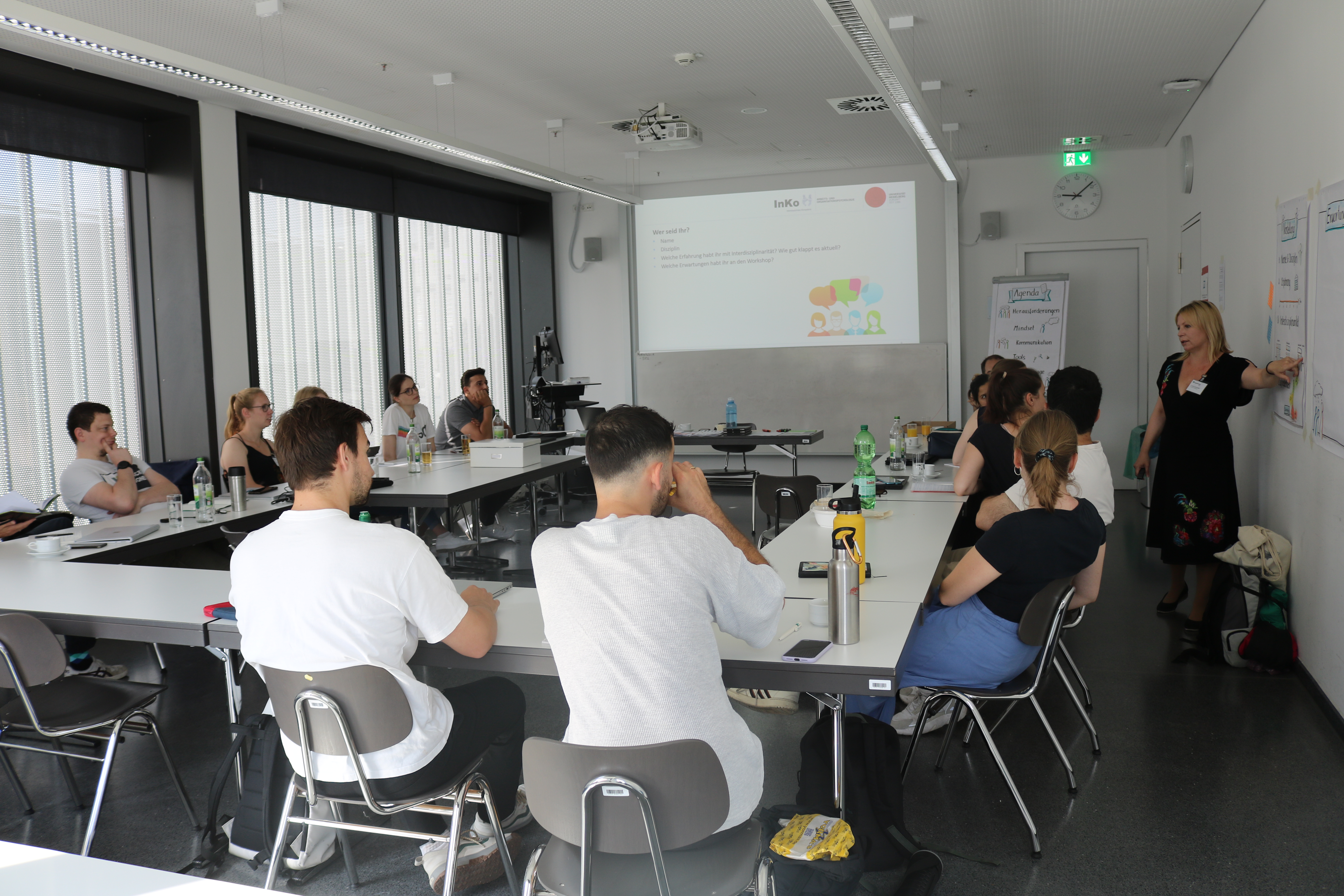"Successful Interdisciplinary Collaboration" - 4D Workshop of the Fraunhofer Cluster of Excellence Immune-Mediated Diseases CIMD young scientist program
On June 20, 2023, the workshop "Successful Interdisciplinary Collaboration" was conducted as part of the 4D workshop series of the Fraunhofer CIMD young scientist program.



The workshop was organized by the Fraunhofer Cluster of Excellence Immune-Mediated Diseases CIMD and dealt with the topic of interdisciplinary collaboration. Dr. Simone Brandstädter was responsible for the preparation and conduct of the workshop. The participants consisted of employees from the core institutes of the research cluster (Fraunhofer ITMP, ITEM and IZI) as well as from other Fraunhofer institutes (Fraunhofer IAIS, IGD and IMM).
With a welcome to the participants, Dr. Simone Brandstädter, research associate of the Work Research and Organizational Design Department at the Psychological Institute of Heidelberg University, opened the workshop. Her research areas cover requirements of the modern working world, especially on interdisciplinarity, mental stress at work and promotion of work-life balance.
Before "Module I: Interdisciplinary Mindset", a short round of introductions by the participants highlighted individual experiences in the context of collaboration and interdisciplinary work, as well as expectations of the workshop. The alternation between short, informative lectures on terminology, topics and challenges in the field of interdisciplinary collaboration and reflection exercises enabled a quick development of the topic. An exchange between participants using the example of stereotypes and the subsequent adoption of perspectives vividly demonstrated the relevance of role perception and clarity with regard to one's own disciplinary role and the role of interdisciplinary project partners.
After the lunch break, "Module II: Interdisciplinary Communication" followed. Here, challenges of interdisciplinary communication were broken down after a short discussion in a feedback session. The avoidance of unintended exclusions by considering the context (intradisciplinary vs. interdisciplinary communication) was deepened and implemented using the example of contributions from the participants. Presentations and posters from the everyday life of the participants offered the opportunity to individually develop generally understandable formulations (analogies, metaphors, images) for the usual work terrain.
"Module III: Interdisciplinary Strategies" represented the final thematic block of the day. Here, participants were taught principles of effective interdisciplinary teamwork. Strategies, such as expectation management and mind mapping, were shown, and the value of defining common ideas for a project and creating a common basis for different disciplines was highlighted. Different tools (i.e., Philosophical Dialogue, Imaging Ideal, moderation technique Flashlight, Agile Team Reflection) were presented to achieve an integrative goal within the team.
The research cluster would like to thank the speaker Dr. Brandstädter for the interesting and exciting impulses and the participants for their active participation.
 Fraunhofer Cluster of Excellence Immune-Mediated Diseases
Fraunhofer Cluster of Excellence Immune-Mediated Diseases